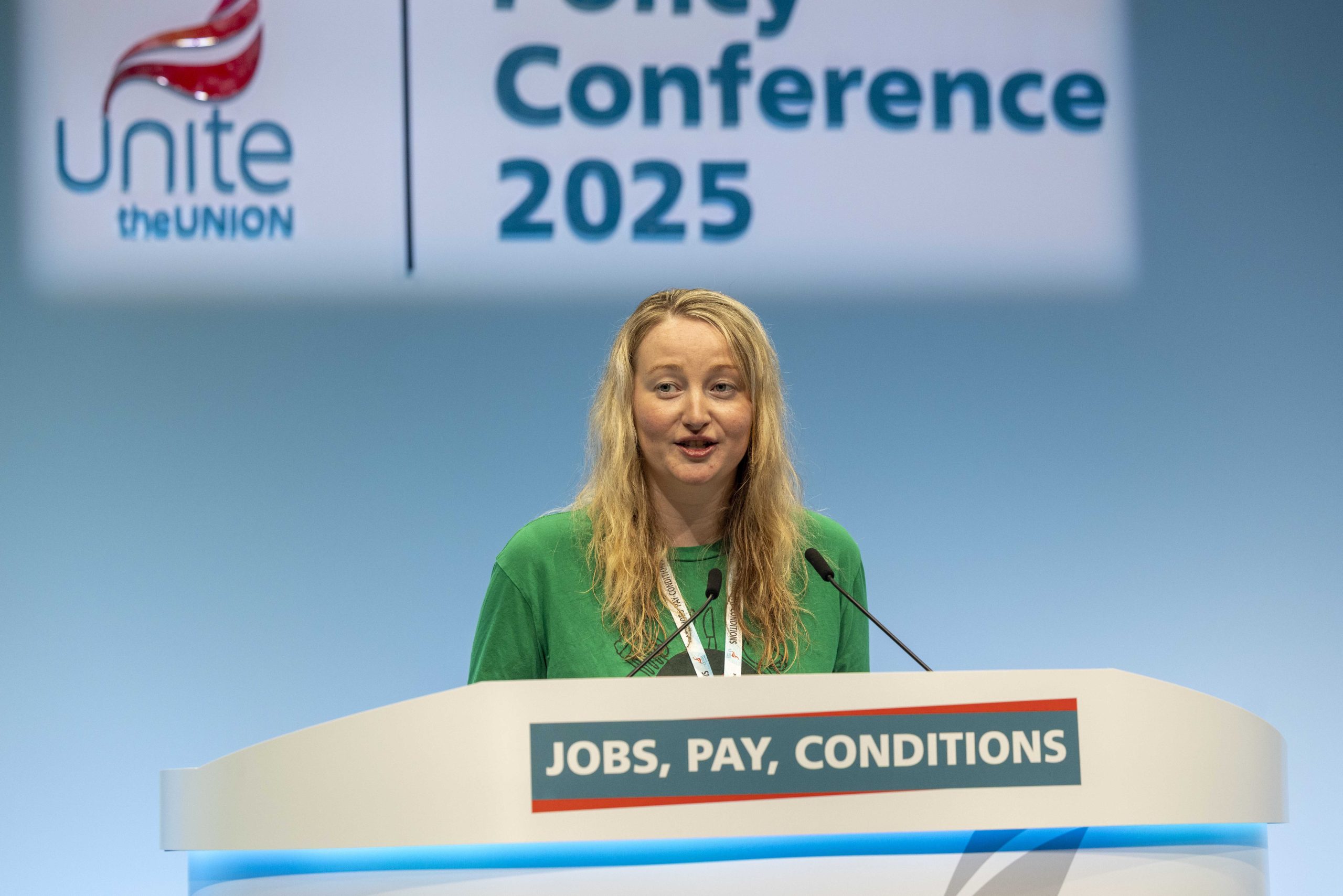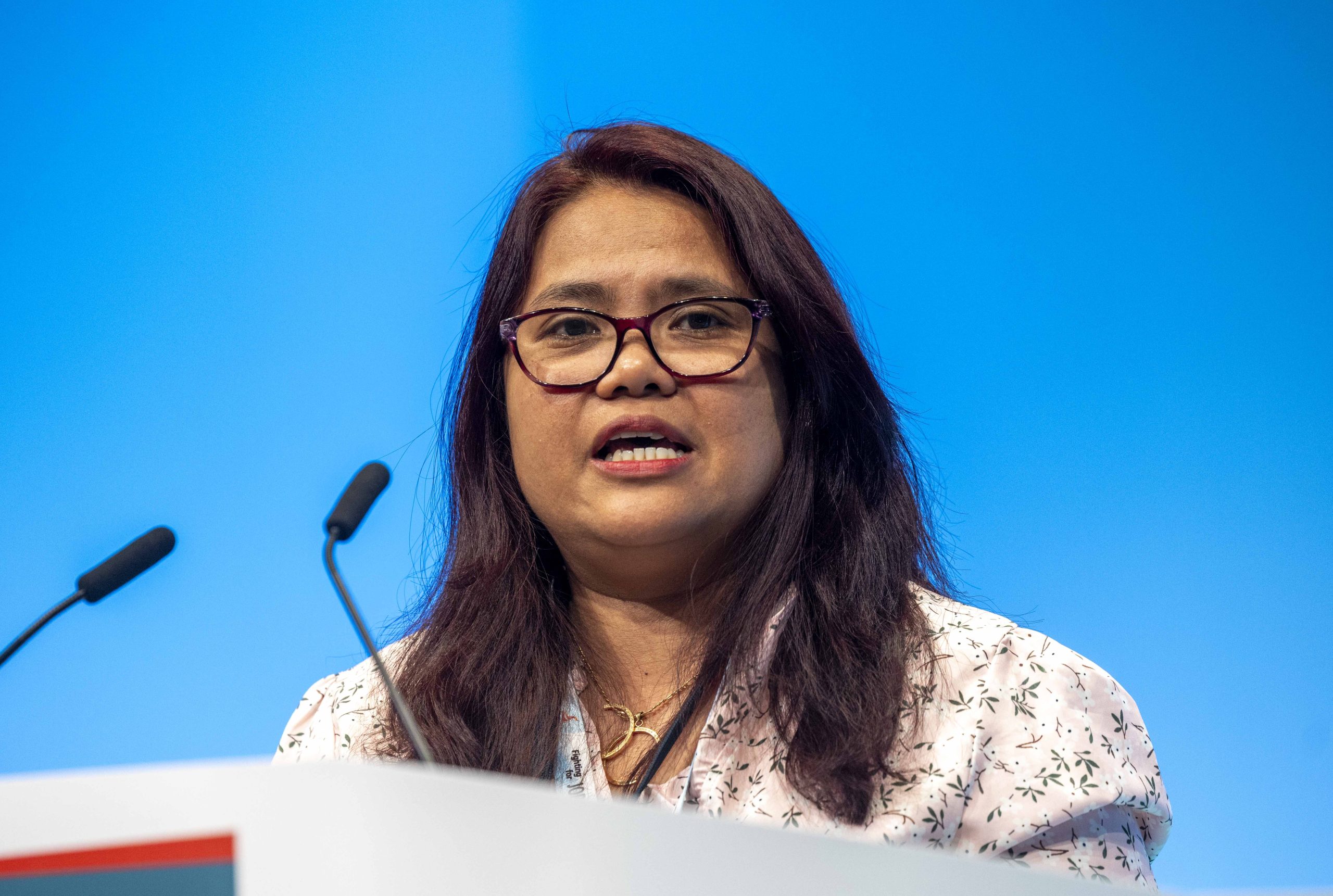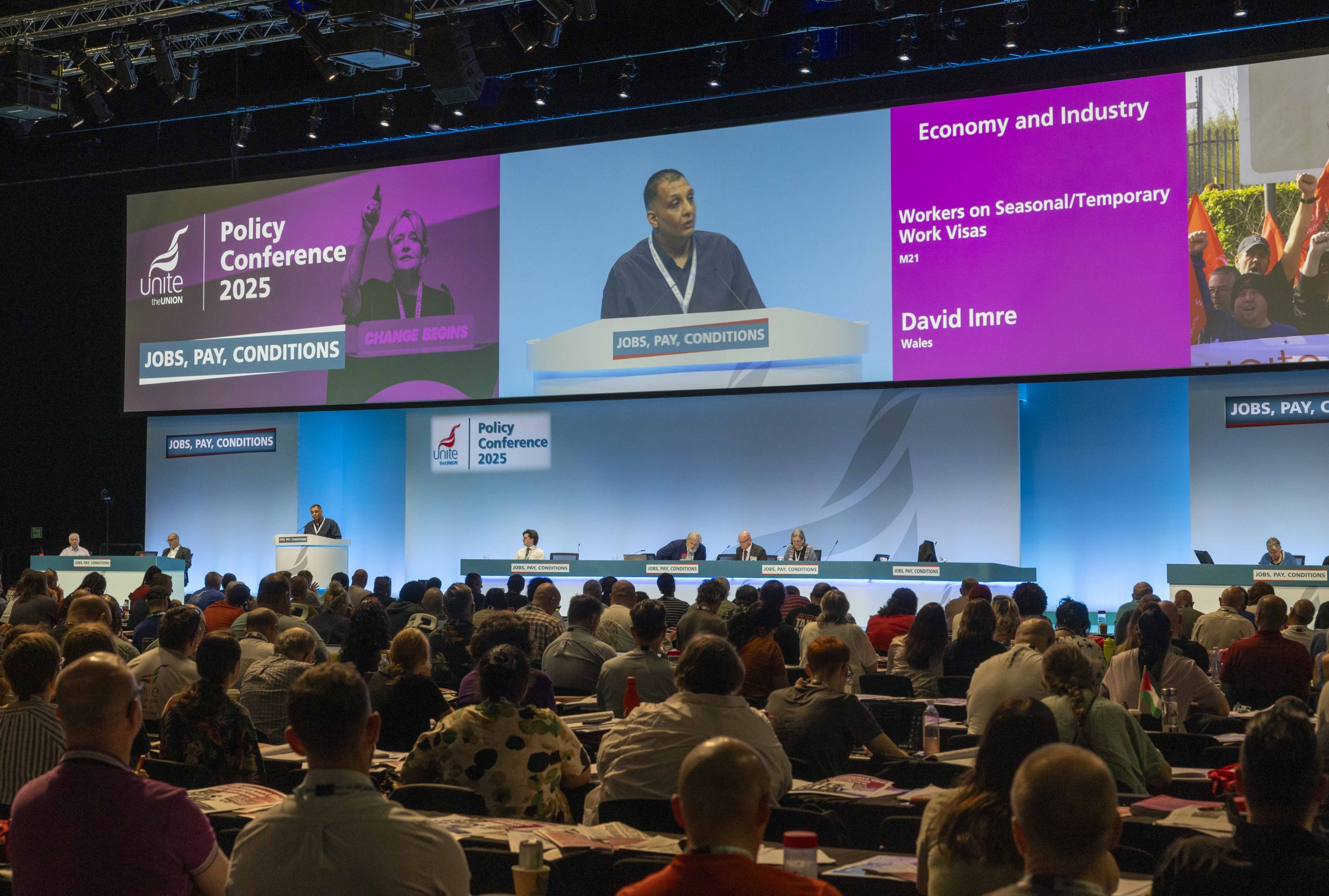‘We are human beings’
Dignity and rights for seasonal workers call
Reading time: 5 min
A motion called for the government to increase the level of protection surrounding workers on seasonal or temporary work visas and that their employers are held accountable.
The motion said this should “include working conditions, accommodation, health and safety, and basic human rights.” It recognised that there are some protections in place, but “they require to be substantially developed and those responsible must be held to account.

In reality many of these migrant seasonal or temporary workers face daily abuse and live in dreadful conditions as delegates were about to hear in some moving and not easy to hear speeches. The motion from Scotland Food, Drink and Agriculture RISC, was formally moved by hospitality worker Amy Snell on their behalf. She said it was a very important motion, the government need to act and the abusers must be brought to account.
The motion was seconded by David Imre, Wales, a migrant worker who works in food production. He said he was seconding the motion “with deep conviction – not just as a delegate, but as someone who has lived this reality alongside so many others.”
He said that he and others came here, determined, with “hope in our hearts and determination in our hands,” believing if you worked hard you could build a better life. But the reality of life in the UK was very different.
“From the moment we arrived we felt how our accents, our visas, made us invisible – or worse, easy targets. We arrived exhausted only to be taken to what they called ‘accommodation’ – but what felt more like a punishment,” he said.
David continued, “We have slept in damp, overcrowded rooms, waking up coughing. We have shared one bathroom with a dozen strangers. We have cooked in filthy kitchens, worked through sickness and injury because we were too scared to speak up. And yet we endured – because what choice did we have?”
He said that migrant workers are the ones that keep the supply chain running. But when it came to their own health, dignity, rights etc they just didn’t matter. Left stranded in “rat-infested rooms,” in rural areas, with no hours, no work, they couldn’t get to see a doctor or to buy food. “Because to complain is to risk everything we came here for,” he explained.
Addressing the conference David said, “This is not just inconvenience. It’s exploitation, dehumanisation. It’s unacceptable in any country that claims to value fairness and workers’ rights. But we are not disposable, we are human beings.”

Mimi Jalamasco, a domestic worker from London and Eastern again spoke from the heart and her own experience.
Referring to the motion David called on delegates to support. Enough was enough. He concluded, “As fellow workers, vote for this motion, vote for fairness, vote for dignity. Let’s show that this union stands up for every worker.”
Mimi Jalamasco, from London and Eastern spoke about the pain and difficulties she had experienced as a domestic worker, in another heartfelt contribution.
She said, “The work we do keeps us surviving, but we’re never truly living.” There is always worry hanging over your head. “The fear of losing your status keeps us exploited. We’re not entitled to use public services like health care so when I’m ill I just have to push through,” Mimi added.
But that’s not the worst of it. Mimi has had to pay a very high price for being a migrant worker. “I have been separated from my family for many years – separated from my children. I missed them growing up. The loneliness has been unbearable.”
Mimi said that migrant domestic workers are “excluded from rights and protections that so many workers take for granted. We are treated as if we were invisible, but we are not. We are human beings.
“Like the farmworkers and their situations in the motion, domestic workers need the same protections. We need policies that protect us, not punish us. No one should have to choose between abuse or deportation.”
She concluded, “We deserve to be safe, we deserve to be seen, we deserve to have a better working life.”

The motion was carried.
By Amanda Campbell
Photos by Mark Thomas



